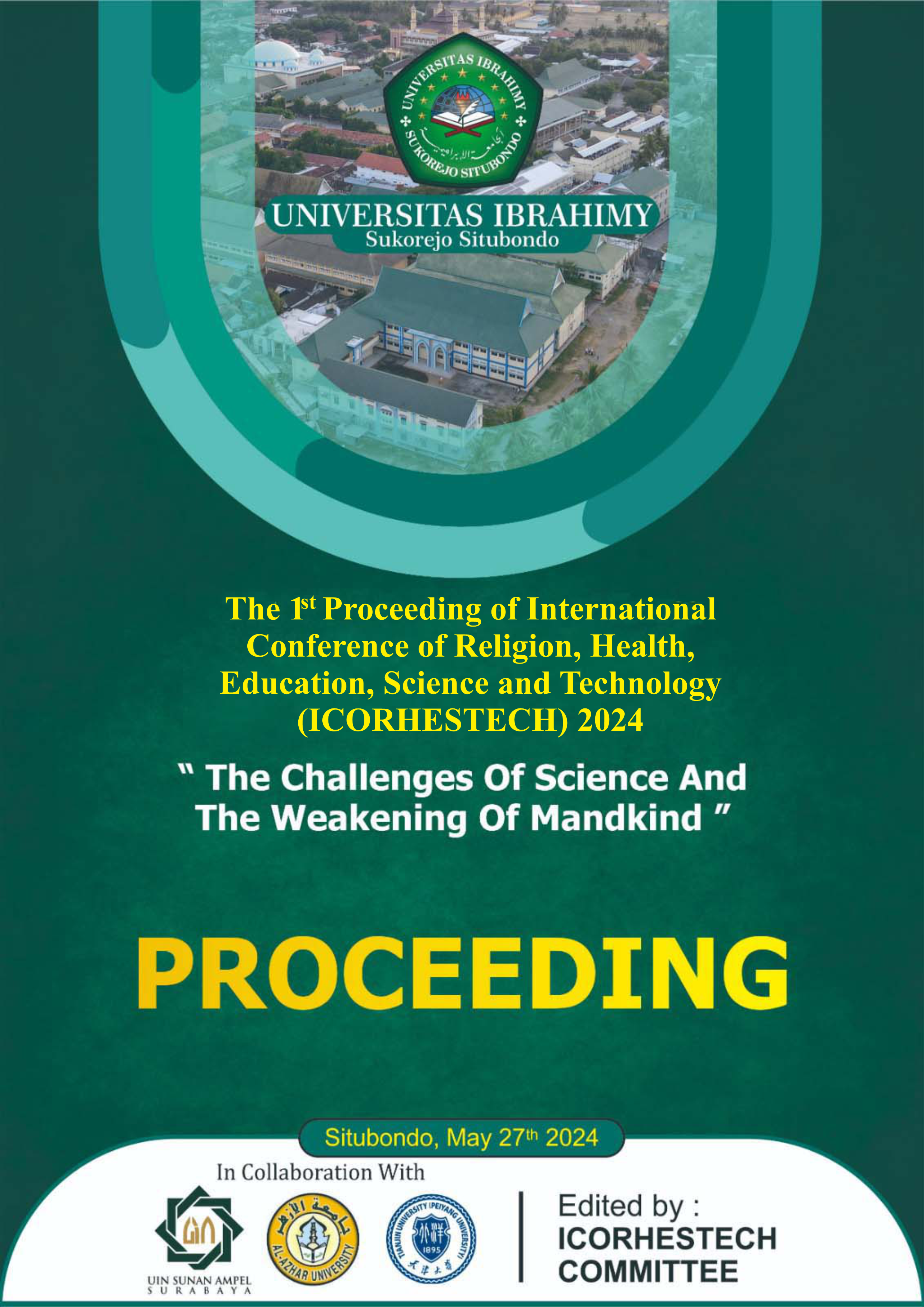Utilization Of PAI Laboratory In Improving Spiritual Competence
DOI:
https://doi.org/10.35316/icorhestech.v1i1.5654Keywords:
PAI Laboratory, Spiritual Competence, StudentsAbstract
Spiritual competence of students requires long stages and careful preparation in its implementation. One of them is the utilization of the Islamic Religious Education Laboratory used to improve the spiritual competence of students. The purpose of this study was to determine the extent to which the utilization of Islamic Education laboratories in improving the spiritual competence of students. This research is descriptive qualitative research. The main data sources of this research are Islamic Religious Education teachers and students. While the secondary data sources are journals, printed books and so on that are directly related to this research. Data collection techniques using interviews, observation, and document examination. The examination of data validity uses credibility by extending participation, increasing persistence in research and triangulation. The results of the research findings show the utilization of PAI laboratories in improving spiritual competence through the application of the form of use of PAI related to mastery of the material, conducting pre-tests before the PAI laboratory, the teacher applies the implementation of individual practice.
References
Basyari, M. H. (2022). The Role and Function of Islamic Education in Society. Journal of Education and Islamic Studies, 08(02), 4.
Decaprio, R. (2013). Tips for Managing School Laboratories. Yogyakarta: DIVA press. Dudin, A. (2018). Case Study of Islamic Religious Education Laboratory at SMAN 3
Bandung. Journal of Religious Education Research, 01(16), 64.
Duryat, M. (2021). The Paradigm of Islamic Religious Education Efforts to Strengthen Islamic Religious Education in Quality and Competitive Institutions (1st ed.). Bandung: Alfabeta.
Fatmawati. (2023, May 19). The Importance of Spiritual Competence for a Teacher. Retrieved from satuguru.id: https://satuguru.id/hajatan/liga-menulis/pentingnya- komoetensi-spiritual-bagi-seorang-guru/
Hidayati, L. (2014). Curriculum 2013 and the New Direction of Islamic Religious Education. Journal of Islamic Education, 19(01), 75.
Nurgayapasa, & Daulay, H. P. (2012). Islamic Education in Educating the Nation. Jakarta: Rineka Cipta.
Nurhasan. (2016). The Objectives of Islamic Religious Education in the Context of Hasan Langgulung's Thought. Al-Makrifat Journal, 01(01), 64-65.
Wafiroh, I. (2019). The Role of PAI Laboratory in Shaping Students' Religious Character at SMA Negeri 02 Jember. Thesis: Undergraduate Program of Islamic Education Study Program, Jember State Islamic Institute.
Wahono, S. S., & Fuadah, D. N. (n.d.). Existence of Islamic Religious Education (PAI) Laboratory in the Material of Corpse Care. Journal of Islamic Education Research, 02(01), 109.
Widiayawati, E., & Muhammad, D. H. (2023). Development of Spiritual Intelligence (SQ) through Islamic Religious Education Learning at Nurul Islam Junior High School, Probolinggo City. Journal for Islamic Studies, 01(06), 7.
Wijaya, S. (2018). The Role of the Islamic Religious Education Laboratory in Shaping the Personality of Students. EVALUATION, 02(02).
Downloads
Published
How to Cite
Issue
Section
License








